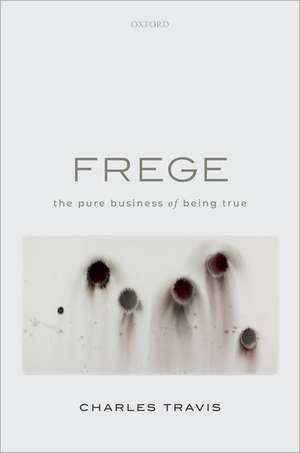Frege: The Pure Business of Being True
Autor Charles Travisen Limba Engleză Hardback – 10 iun 2021
Preț: 499.16 lei
Preț vechi: 553.84 lei
-10% Nou
Puncte Express: 749
Preț estimativ în valută:
95.53€ • 99.36$ • 78.86£
95.53€ • 99.36$ • 78.86£
Carte disponibilă
Livrare economică 13-19 martie
Preluare comenzi: 021 569.72.76
Specificații
ISBN-13: 9780198844129
ISBN-10: 0198844123
Pagini: 272
Dimensiuni: 163 x 241 x 21 mm
Greutate: 0.57 kg
Editura: OUP OXFORD
Colecția OUP Oxford
Locul publicării:Oxford, United Kingdom
ISBN-10: 0198844123
Pagini: 272
Dimensiuni: 163 x 241 x 21 mm
Greutate: 0.57 kg
Editura: OUP OXFORD
Colecția OUP Oxford
Locul publicării:Oxford, United Kingdom
Notă biografică
Charles Travis started in Philosophy from Mathematics in 1962 at Berkeley where he took up his first position. He was awarded his doctorate from UCLA in 1967, and went on to work at the University of North Carolina. He later became a professor at Stirling in Scotland, then at Northwestern University in Evanston Illinois, then at King's College London.
